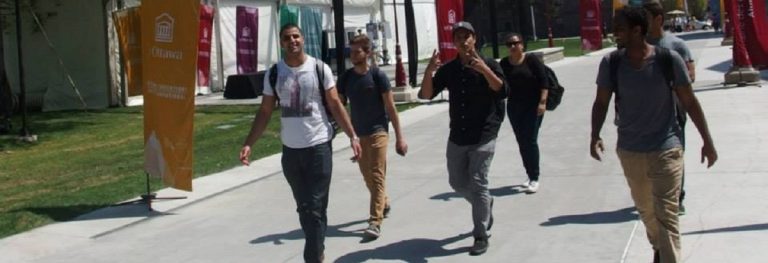
The University of Ottawa announced yesterday that the university was “deeply concerned” about American President Donald Trump’s executive orders and have thus “immediately sought ways” to help any students or academics who are affected.
Last Friday, Trump issued an executive order that temporarily barred travelers from seven Muslim-majority countries – Syria, Iran, Iraq, Libya, Somalia, Sudan, and Yemen – which resulted in a weekend of chaos. International students and academics in the U.S. represent a group deeply impacted by this order.
The university, located in Canada’s capital, provided eight measures to assist students and academics from affected countries. Among the measures listed are enrolling them in similar courses and helping them establish themselves at the Canadian campus, including housing and financial assistance.
#WelcomeToCanada pic.twitter.com/47edRsHLJ5
— Justin Trudeau (@JustinTrudeau) January 28, 2017
They also offered to work with Canadian immigration officials to assign a status for said affected students to pursue their studies in Canada without fear of being deported to their country of origin.
“Universities must serve as a model for the diversity of disciplines, perspectives, and people among us,” said Jacques Frémont, the university’s president and vice-chancellor, in a statement. “This lies at the very heart of our mission and must not be questioned.”
For academics from the seven nations included in the ban, the university has offered to consider visiting appointments and help with housing and access to the university’s support services.
Whereas for current students and academics, the university stated it will continue to monitor the situation and is open to taking further measures to protect students and academics.
University of Ottawa is the largest English-French bilingual university in the world and ranks among the world’s 200 most international universities in Times Higher Education World University Rankings 2015-2016.
#WelcomeToCanada
While Canada has refrained from directly criticising the travel bans, the North American country, like the University of Ottawa, has taken active steps to assist those affected.
To those fleeing persecution, terror & war, Canadians will welcome you, regardless of your faith. Diversity is our strength #WelcomeToCanada
— Justin Trudeau (@JustinTrudeau) January 28, 2017
Last Sunday, Canada’s immigration minister, Ahmed Hussen, announced that Canada will offer temporary residence to those affected by Trump’s travel restrictions.
He said it was unclear how many people would be eligible, given that only a handful of passengers heading to the U.S. had been denied boarding at that point.
“Let me assure those who may be stranded in Canada that I will use my authority as minister to provide them with temporary residency if they need it,” added Hussen, who came to Canada as a teenage refugee from Somalia.
In Ottawa itself, there are plans to make the capital a sanctuary city like Toronto by spring.
Somerset ward councillor Catherine McKenney said she intends to propose a motion next week aimed at ensuring undocumented immigrants have access to the City of Ottawa’s services without fear of being detained or deported.
“When things around the world are so tenuous and people are nervous about traveling around, I think it’s important we take care of each other,” McKenney said to CBC.
Liked this? Then you’ll love these…
Canada is making it easier for international students to become permanent residents







